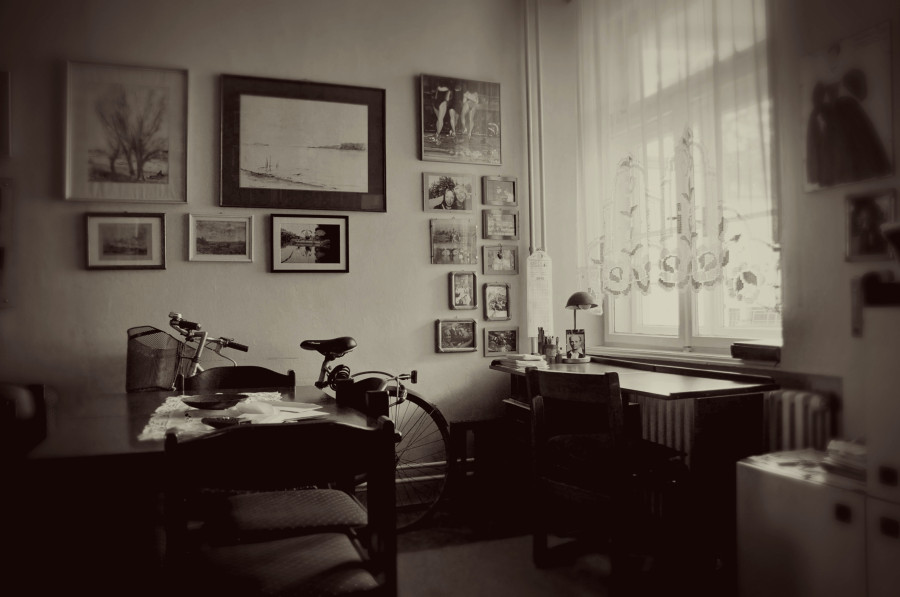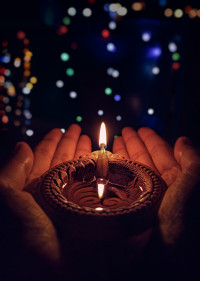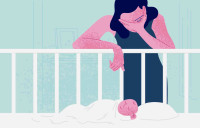As it is
A museum in my home
The places we have lived in stay with us, as it is, even after we have moved far away from it.
Shuvekshya Limbu
My friend always said that my house smelled like warm rice and curry, wafting into her nose at 12 pm and tempting her to break her no-carb diet. Now every time I think about home, I think of boiled rice and the sweet smell of thin onion strips sizzling away in a hot pan. I can hear my mother humming subconsciously as she sits by the window cutting vegetables for dinner. I can picture the dining table and the always-present basket of fruits that my dad picks up from the market every morning. In the dining room's windowsill, my mother's pickles glisten in jars.
Every new month, my mother will clean the stubborn oil stains on the kitchen wall, just above the stove. In one corner of the kitchen will be our 10-year-old LG fridge humming like a Buddhist monk, even in the dead of night. And during summer, daring cockroaches will come out of their hiding nooks to nibble at my mother's leftover curry only to meet with instant death tasting the poison chalk on the floor.
TV lights will illuminate the living room as my dad watches the 7 pm news with glasses perched on the bridge of his nose and a steaming cup of tea by his side. The news will be as follows: the parliament's decision to dissolve the government after yet another failed democratic coalition, the ever-rising fuel prices, young people leaving the country for better opportunities, and between the news will be an advert of a popular instant noodle brand. My dad will groan, sigh and curse in disappointment—‘Where’s this country heading?’
Our lime green sofa will contain my nephew's lego pieces from the afternoon and his stick figures perched on the wall, just behind the sofa. My sister and I will keep smiling from the big picture hung on the wall, as the souvenirs consisting of a Koala plush toy, miniature models of an Emirates aeroplane, and the London Bridge substitute for our absence.
Meanwhile, my room will still hold the tiny collection of books of which I was so proud of. Some of my favourite books by Franz Kafka, Murakami, and Ishiguro will be collecting dust; their pages yellowed, blotted, dog-eared from all the times I reread and highlighted my favourite parts.
Perhaps, I can still hear the sounds of kids playing cricket outside my window in the main street and my neighbour's pressure cooker screaming with the proclamation of perfectly cooked daal. If I listen hard, I will hear the distant muffled drone of an aeroplane carrying people to a new beginning—far away from the dust fumes that now permanently hang over Kathmandu, from the clanging of bells from the thousands of temples that my mother frequented for our success, away from the languid commotion of a city that chokes dreams and youth.
Thousands of kilometres away from home, I am here in Sydney, staring at the city's towering skyscrapers. The city has been my home for the past three years. I have frequented its glistening Westfields and dined in Circular Quay overlooking the Harbor Bridge. I have jaywalked drunk with laughter on the light rail tracks of the city. I have eaten Kebab rolls in Blacktown in shops that stay open till 3 am. I have perfected my Australian accent and stopped sweating in front of old men at the pub who complain to me about all the jobs that have been taken over by Indians and Chinese. I serve 60 beers a shift to these people who call me 'Sue' or 'Suzie' instead of Shuvekshya. I scrub tables and clean ashtrays while exasperated sighs escape my chest like the whispers of a storm that has laid dormant for far too long. In between my shifts, I sometimes think about the two-storey home in Kathmandu.
I pray that it is still filled with the smell of rice and curry and the sounds of the 7 pm news that's interrupted with the sharp whistle of the pressure cooker. I pray that its walls warm up as the sun climbs up. But sometimes, I imagine the worst; my mother's wrinkled face contorted into a grimace as she coughs for her life. I fear that she will get infected by Covid-19, and my father will be too old to take her to the hospital. My mother's sheer disregard for modern medicine and blind approval for prayers and honey-infused turmeric drinks amplify my fear in these uncertain times. There is, I imagine, a chilling reality in the prospect that the people we deeply love will not be around forever.
But I hope my home remains the same, forever frozen in time; all the sounds, smell, and images perfectly curated and preserved like someone's personal version of a well-funded museum. I hope my parents never age. I hope Kathmandu remains the same; filled with the clanging of bells, children playing cricket out on the streets, and its chilly air pervaded with the smell of momos and sweet milk tea. I hope my friends always have time to catch up on weekends. I hope the street vendor outside of my house still makes the tangiest pani puris. I hope nothing changes from how things are imprinted in my memory—regardless of the distance, the oceans, time, governments, lack of opportunities, and the pandemic.




 18.37°C Kathmandu
18.37°C Kathmandu










